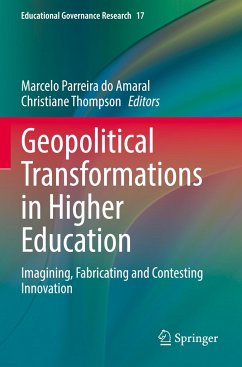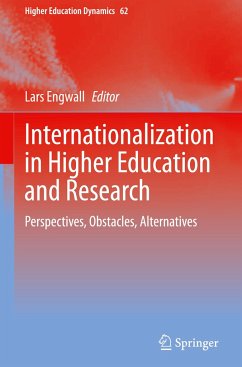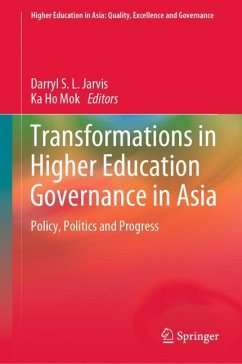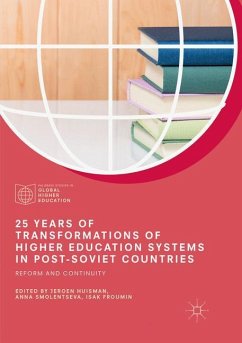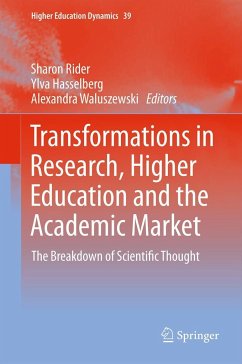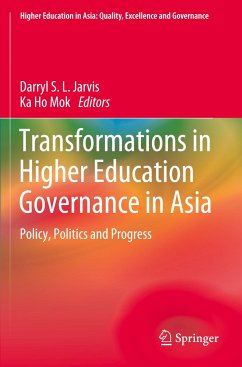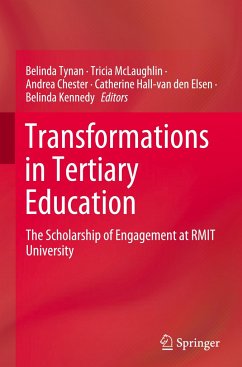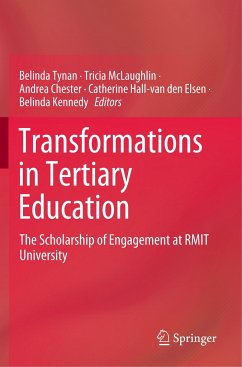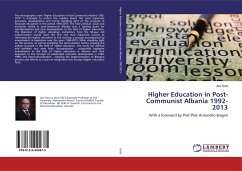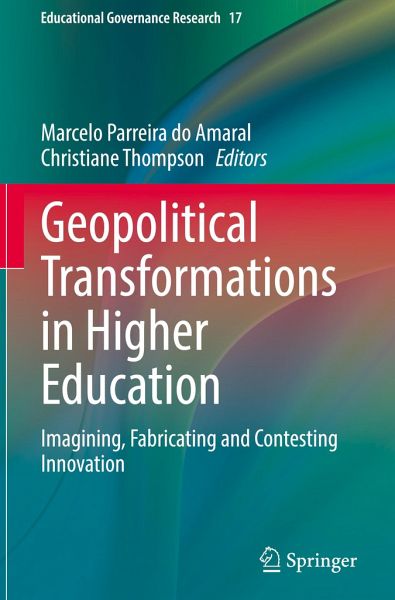
Geopolitical Transformations in Higher Education
Imagining, Fabricating and Contesting Innovation
Herausgegeben: Parreira do Amaral, Marcelo; Thompson, Christiane

PAYBACK Punkte
53 °P sammeln!
This book discusses the central role education and research play in generating both value and comparative advantages in the (imageries of) global competition, competitiveness and transnational value chains. They are seen as assets placed at the forefront of developments that are arguably reshaping individuals, society and economy. This edited volume explores these developments in terms of changing relations between society, economy, science and individuals.The idea that we live in global knowledge societies and knowledge-based economies or that present-day productive systems constitute an indu...
This book discusses the central role education and research play in generating both value and comparative advantages in the (imageries of) global competition, competitiveness and transnational value chains. They are seen as assets placed at the forefront of developments that are arguably reshaping individuals, society and economy. This edited volume explores these developments in terms of changing relations between society, economy, science and individuals.
The idea that we live in global knowledge societies and knowledge-based economies or that present-day productive systems constitute an industry 4.0 have gained currency as descriptions of contemporary society that are said to bear direct and indirect consequences for political, economic, and social orders. In this context, innovation, science and education are central themes in contemporary discussions about the future of modern societies. Innovation is enthusiastically embraced as the panacea for all sorts of societal issues of our times; science is equally deemed to play a decisive role in solving current problems and in heralding a bright future with more wealth and more welfare for all citizens; education is conferred the task to producing individuals equipped with both skills and competences considered key to innovation but also displaying the attitudes and dispositions that will secure continuous innovation and economic growth.
The idea that we live in global knowledge societies and knowledge-based economies or that present-day productive systems constitute an industry 4.0 have gained currency as descriptions of contemporary society that are said to bear direct and indirect consequences for political, economic, and social orders. In this context, innovation, science and education are central themes in contemporary discussions about the future of modern societies. Innovation is enthusiastically embraced as the panacea for all sorts of societal issues of our times; science is equally deemed to play a decisive role in solving current problems and in heralding a bright future with more wealth and more welfare for all citizens; education is conferred the task to producing individuals equipped with both skills and competences considered key to innovation but also displaying the attitudes and dispositions that will secure continuous innovation and economic growth.



